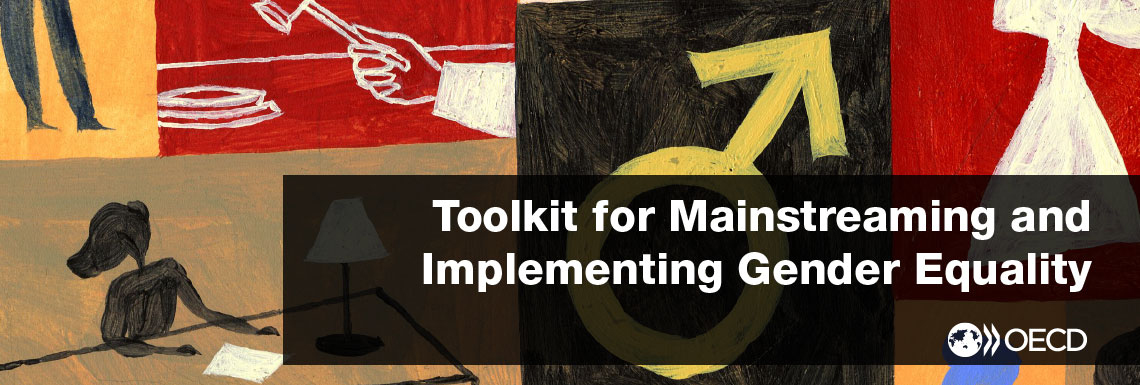Oversight institutions and advisory bodies monitor implementation
SELF-ASSESSMENT QUESTION
- Do oversight institutions and advisory bodies have a clear mandate to monitor and provide recommendations to government with respect to the implementation of national gender equality and/or mainstreaming strategies?
- Is gender expertise available – within institutions themselves or through cooperation with specialized gender quality institutions – to support oversight institutions and advisory bodies in effectively monitoring the implementation of gender equality and/or mainstreaming strategies?
- Do oversight institutions and advisory bodies have a framework and a mechanism to measure progress vis-à-vis the implementation of gender equality and/or mainstreaming strategies?
- Can oversight institutions effectively communicate gender equality outcomes and disseminate the results of audits and gender equality measurements to citizens?
WHY IS IT IMPORTANT?
Sound accountability and oversight that involves reporting to the highest possible level of government increases the likelihood that gender mainstreaming initiatives will be successful and sustainable, and that gender equality will remain a legislative priority. In many OECD countries, oversight institutions play both a pre-emptive and “corrective” (or recourse) role. Oversight institutions can include parliaments, supreme audit institutions or ombuds office. Independent oversight institutions and advisory bodies have a unique view of government and can provide neutral, objective evaluations on policy formulation, implementation, evaluation and outcomes.
Oversight and accountability institutions can also play an important role in communicating to citizens about gender equality outcomes, gender mainstreaming strategies and gender equality concerns such as violence against women or the gender pay gap.
ACTIONS TO CONSIDER
- Ensure oversight institutions and advisory bodies are mandated and given sufficient authority to monitor, oversee and promote the implementation of gender equality over all of government;
- Provide independent oversight institutions and/or parliamentary bodies with the capacity (resources, staff, expertise) to monitor, oversee and promote the implementation of gender equality over all of government;
- Oversight institutions and advisory bodies established a framework and a mechanism to measure progress vis-à-vis the implementation – including a regulated process, an analytical framework and specific indicators.
PITFALLS TO AVOID
- Oversight responsibilities lay within government institutions instead of independent bodies – thus compromising reliable results;
- Oversight and advisory institutions have vague/weak mandates and authority with regard to monitoring gender equality strategies;
- Oversight and advisory institutions are inadequately staffed and resourced;
- Gender equality strategies’ monitoring efforts are conducted without a clear analytical and measurement framework – thus producing results which are not robust and comparable through time;
- Gender equality strategies’ monitoring efforts are not conducted regularly.
COUNTRY EXAMPLES
Sweden
The 2015 Swedish National Audit Office Report stated the need for an institutional structure that strengthens gender equality work and helps ensure a long-term approach and sustainability5. As a result, in its Budget Bill, the Swedish Government announced its intention to establish a gender equality agency in 2018 to achieve a strategic, cohesive and sustainable governance, and effective implementation of the gender equality policy6.
Austria
The Austrian Parliamentary Budget Office (PBO) was established in 2012 to support Parliament in the budgetary process, in consulting and enacting budget laws and fulfil its oversight role. Key tasks of the PBO are supporting the Budget Committee in form of written expertise, analysis and short studies on budgetary matters presented by the government according to the Federal Organic Budget Act, preparing brief information upon request of members of Budget Committee, supporting other parliamentary committees regarding impact assessment of new legislation and – explicitly mentioned – consulting Parliament on performance budgeting concerning equality of women and men (gender budgeting). PBO studies address progress of gender equality in the framework of performance budgeting and also publish recommendations for enhancement of the framework (concept) itself.
Israel
Department of Gender Equality in the Israeli Civil Service Commission is mandated to monitor implementation of government wide gender equality and mainstreaming policy. The Department of Gender Equality evaluates and measures each governmental office's current standing and progress, maintains an accountability framework, and creates relevant and significant work-plans for the advancement of gender equality and mainstreaming strategies, initiatives, public policies and programmes within each office.
Governmental offices and units are obliged to present the findings of these reports to the Exceptions Committee of the Israeli Civil Service Commission. The offices that do not reach their goals of adequate representation have their recruitment quota cut until a work-plan is presented to advance adequate representation.

